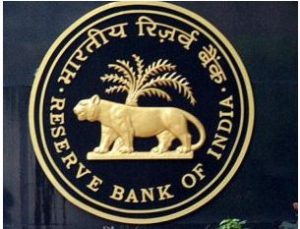On June 13, 2017, Reserve Bank of India identified 12 non-performing accounts representing 25% of gross NPAs in Indian banking system, which will be immediately taken up under the Insolvency and Bankruptcy Code (IBC).
Background Information:
The Indian banking sector has accumulated gross non-performing assets (NPAs) worth over Rs 8 lakh crore, of which Rs. 6 lakh crore is with public sector banks.
- On June 12, 2017, an Internal Advisory Committee (IAC) of RBI comprising majorly of central bank’s independent board members held its first meeting to consider cases under the new IBC.
- To start with, IAC agreed to focus on large stressed accounts and thereby took up for

- The IAC followed an objective and non-discretionary criterion that all accounts with total outstanding loans greater than Rs 5,000 crore, with at least three-fifths (60%) classified as non-performing by banks as on March 31, 2016, should be referred under IBC.
- Besides the 12 accounts, for other bad loan accounts, RBI has instructed banks to finalise a resolution plan within six months. If the plan is not agreed within the stipulated time, those accounts too shall be subjected to IBC.
About Insolvency and Bankruptcy Code (IBC):
Insolvency and Bankruptcy Code, 2016(IBC) is the bankruptcy law of India that seeks to resolve bad loans through the legal route.
- It was passed by Indian Parliament in May 2016, and came into force from August 2016.
- The code prescribes separate insolvency resolution processes for individuals, companies and partnership firms and has also specified the time limit within which the process should be completed.
- Insolvency and Bankruptcy Board of India, was established in October 2016 to oversee the insolvency proceedings and regulate the entities registered under it.
- The code has outlined that the process should be managed by licensed professionals, who will also control the assets of the debtor during the insolvency process.
- National Company Law Tribunal (for companies and Limited Liability Partnership firms) and Debt Recovery Tribunal(for individuals and partnerships) are the arbitration authorities for cases filed under IBC.
AffairsCloud Recommends Oliveboard Mock Test
AffairsCloud Ebook - Support Us to Grow
Govt Jobs by Category
Bank Jobs Notification